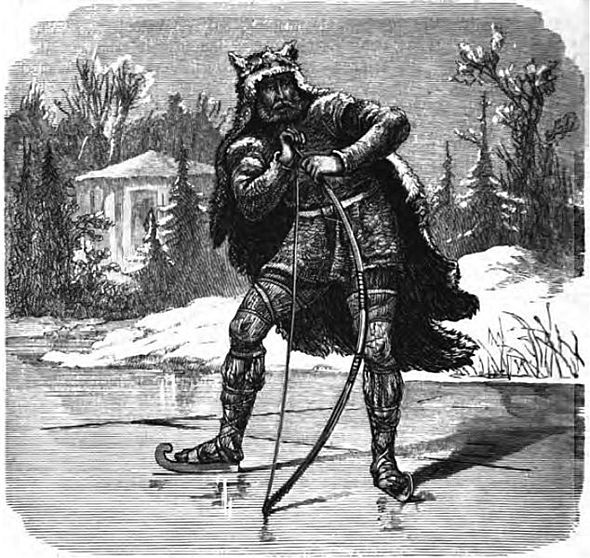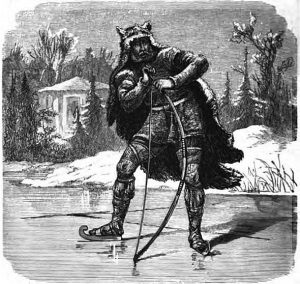Today is, of course, the Winter Solistice, a notable date for hunter-gatherers and agriculturalists who were wholly at Nature’s mercy when it came to finding or nurturing plants and animals for their sustenance. Not surprisingly, the forces at work were viewed as deities — that gave people hope of being able to win their favor through proper worship and offerings. Here’s a brief accounting of some of the religious observances and myths that arose at various points in human history inspired by awe of such phenomena from the relatively non-sensationalist Acuweather.com site:
The winter solstice has been a major event for religions throughout history. For many groups who lived in climates that experienced drastically different seasons, winter was often a hard time of year for finding food and surviving the elements.
For cultures that credited each aspect of their lives to a god or goddess, winter was a time to appease the deities of the season to ensure survival and the return of spring.
Ancient Greek mythologies are an example of a culture in which each aspect of the seasons and weather elements were credited to divine beings.
“All meteorological forces, each direction of the wind had a name and was worshiped as a god,” said Dr. Clint Corcoran, head of the Religion and Philosophy Department at High Point University.
The Greek seasons myth centers on the story of the goddess Demeter, ruler of harvest. When her daughter Persephone was kidnapped by Hades, lord of the underworld, she became so despondent that she could not care for the lands, and winter took over. After a deal was struck with Hades, Persephone was allowed to return to the Earth for six months of the year at which time the lands thrived, but every six months she would return to the underworld and the seasons would change again.
Each direction of wind was considered a god. Boreas was the Greek god of the north wind. Depicted in ancient art as an old man, he was considered the bringer of winter and the cold. The harshness of the season was paralleled by his supposedly harsh personality, short-tempered and severe.
Conversely, in some Celtic traditions, the Oak King is considered a deity of the winter solstice and is seen as a bringing of life. According to legend, the Oak King would battle the Holly King who ruled from the start of summer. Though the Oak King’s reign would begin at the darkest time of the year, his coming marked the gradual progression towards spring and summer, rather than being seen as the bringer of the winter season.
Read their entire piece here: http://www.accuweather.com/en/weather-news/winter-jack-frost-myth/21183076


